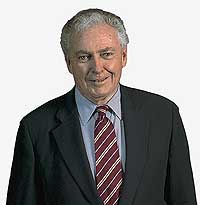Message from the President
A Guide of Experience and Wisdom
Consider the Colonial Williamsburg maxim: "That the future may learn from the past." It sums up our mission, but it raises an important question: Exactly what knowledge is it that we want to impart?
If you are a regular reader of this journal, you know the answer. It's an understanding of, an appreciation for, the heritage of citizenship—the legacy of self-government from the meeting of English America's first representative assembly at Jamestown in 1619, our birthright from 1776 and the Revolution, and the patrimony of constitutionalism from 1787 and the Founding Fathers.
But then, more questions come to mind: Has America kept faith with the founders? Are America's original principles relevant in a global age? What is the role of the citizen in a democratic republic? How will citizens shape their governments and the societies they serve? How do citizens affect the future?
History is the first place to look for answers. It offers a guide of experience and wisdom, of failure and recovery, of ignominy and glory.
In the months ahead, Colonial Williamsburg, collaborating with like-minded institutions, will be addressing citizenship questions in programs intended to carry to towns and cities from coast to coast lessons from the historic streets of Williamsburg, lessons from the colonists' fort at Jamestown, and lessons from the Continentals' battlefield at Yorktown.
September 16 the three-day World Forum on the Future of Democracy, a conference subtitled "Jamestown Legacies for the Twenty-first Century," begins with a keynote address by retired Supreme Court Justice Sandra Day O'Connor. Former Presidents George H. W. Bush and Bill Clinton and former British Prime Minister Margaret Thatcher are honorary co-chairs, former House Speaker Thomas Foley and former Attorney General William Barr honorary vice-chairs.
Sponsored by the Jamestown 400th Commission, Colonial Williamsburg, and the College of William and Mary, the forum includes scholars, students, and leaders from around the world. They will gather at the Williamsburg Lodge and the college campus to examine such issues as the impact of globalization, technology, and democratic movements on the world economy; the impact on democracy of such global problems as terrorism, environmental degradation, poverty, and religious tensions.
In October, Public Broadcasting System stations, working with Colonial Williamsburg, will conduct "Dialogues in Democracy" with citizens of Albuquerque, New Mexico; Baton Rouge, Louisiana; Denver, Colorado; Kansas City, Kansas; Lincoln, Nebraska; New Haven, Connecticut; Cleveland and Bowling Green, Ohio; Houston, Texas; Rochester, New York; Seattle, Washington; and Norfolk, Virginia. Through conversation and deliberative polling of randomly selected citizen delegates, these programs will probe issues foremost on the minds of Americans as they approach the 2008 elections.
The series will be capped in November with a summation televised nationally from the House of Burgesses in Williamsburg. The dialogues will continue on a new Web site being designed to provide information about citizenship and to foster conversation on a subject so critical to sustaining our democratic republic.
These 400th Anniversary efforts complement Colonial Williamsburg's core endeavors. Through programming, conferences, teacher institutes, telecasts, and the Internet, we teach the story of citizenship. That should be more than a lesson about process—about how our government works. We take a broader view.
We include the story of America as a revolutionary nation. We tell that story in a way that inspires citizens to understand their roles, as the latest participants in a long-running experiment in republican rule, links between our nation's past and its future.
Colin G. Campbell
Chairman and President

